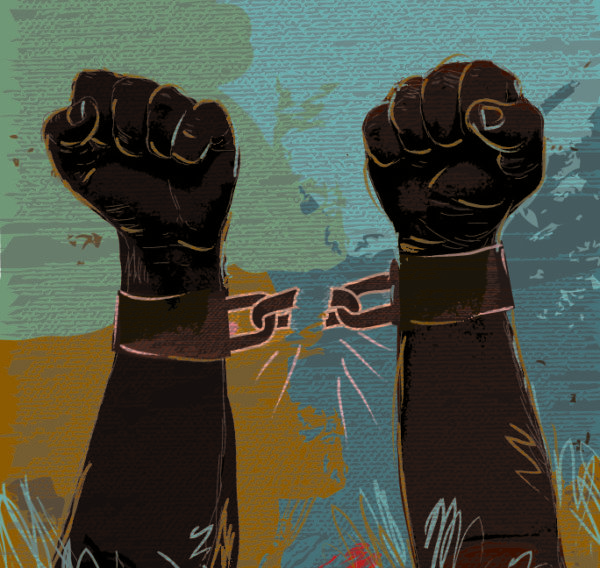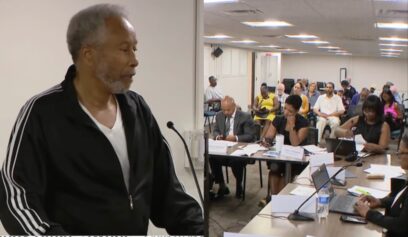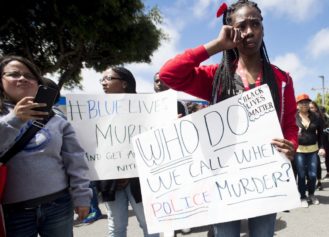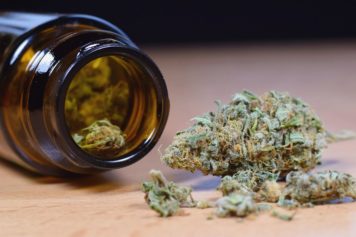A group of Black seminarians is demanding reparations after a Princeton Theological Seminary report describing its founders and early faculty’s role in the slave trade.
The Association of Black Seminarians launched an online petition this month calling on the institution to make “amends” by allocating $5.3 million, or 15 percent of the seminary’s current endowment, to fund tuition grants for Black students and to create a Black Church Studies program, The Washington Post reported. So far, the petition has collected close to 600 signatures.
The group argues that Princeton Seminary could be a pioneer in distributing reparations.

The Princeton Theological Seminary report found that school officials had accepted money from wealthy slave owners, which accounted for 15 percent of the seminary’s total revenue during the pre-Civil War era. (JDawnInk / Getty Images)
“Princeton Theological Seminary is uniquely positioned to lead the theological academy iin addressing historic, structural, educational and theological racism,” their petition reads.”In the spirit of moving forward, the ABS encourages the Board of Trustees and Administration to follow the instructions of [Leviticus] 26:41 fully, in which the covenant people of God are called to make amends for the iniquity of their ancestors.”
“By enacting the following, the seminary will take a major step towards becoming the Covenant Community to which it aspires,” it continues.
The seminary’s report, released in 2018, ended two years of research started by seminary president Craig Barnes in 2016, according to the newspaper. The report found that while the institution didn’t own enslaved Blacks nor use them to construct the campus’ buildings, it did, however, accept money from wealthy slaveholders. That money accounted for nearly 15 percent of the seminary’s total revenue during the pre-Civil War era.
The inaugural president of school’s board of directors condemned slavery yet owned several slaves. The seminary’s first three professors were also slaveholders.
In its petition, the Black seminarians group is now demanding that 15 percent of what the seminary uses for its endowment be used for “redressing this historical injustice.” The cash would be used to fund full tuition for all African-American students, as well as student loan forgiveness for Black alumni. The petition also calls for ten full tuition, fees, and room and board grants for students from Liberia and other West African countries, which they called “the original lands of those enslaved.”
Moreover, the ABS urged Princeton Seminary leaders to pursue partnerships with historically Black colleges and universities (HBCUs), as well as Presbyterian-affiliated seminaries. The group also calls on the school to increase its African-American faculty and address the “mixed legacy” of figures for whom its buildings are named, among other things.
“This act of restorative justice will move American theological education away from its imperialistic, Eurocentric impulses towards a holistic, globally responsible posture,” the group wrote. “For this institution to act on its imagination of a community on a path towards ethnic and racial healing would be an act of constructive practical theology.”
The seminary currently has 450 students, 13 percent of whom are Black.
The idea of Reparations has become a hot-button issue in the 2020 presidential race, with several Democratic candidates seemingly throwing their support behind it. Sens. Kamala Harris (D-Calif.) and Elizabeth Warren have embraced the idea of reparations for Black Americans impacted by the legacy of slavery, the latter arguing that the U.S. “must confront the dark history of slavery and government-sanctioned discrimination in this country.”
“Black families have had a much steeper hill to climb — and we need systemic, structural changes to address that,” Warren added.
Neither candidate has released specific plans on how they’d distribute said reparations, but their stance on the issue is a far cry from that of Vermont independent Sen. Bernie Sanders, who called the idea of reparations “divisive.”
Keri Day, a professor of constructive theology who sits on a task force at the New Jersey seminary, doesn’t see it that way, however.
“Reparations is our theological response,” Day told The Washington Post. “We believe repentance is repairing. Repairing is not just saying ‘I’m sorry’ but restoring.”
The Princeton Theological Seminary, the second-oldest in the nation, isn’t the only school to have launched a project publicizing their past ties to slavery. Princeton University, which is not affiliated with the seminary, released their own report on slavery in 2017.


